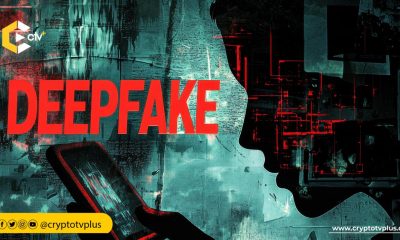News
Global experts advocate for responsible AI use, signs pact

Over 300 experts in technology, artificial intelligence (AI), digital ethics, and child safety globally have united to issue an open letter urging governments to take immediate action against deepfakes.
Released on February 21 under the title “Disrupting the Deepfake Supply Chain,” the letter calls for governmental intervention to curb the proliferation of deepfakes.
AI and deepfakes have significant impacts on the world, both positive and negative. AI has the potential to revolutionize industries, improve efficiency, and create new opportunities.
However, it also raises concerns about job displacement, privacy, and security. Deepfakes, which are synthetic media created using AI, have the potential to deceive and manipulate people, damage reputations, and spread misinformation.
They can be used to create realistic-looking videos or audio recordings of public figures, politicians, or celebrities saying or doing things they never did, which can be weaponized to spread false information and manipulate public opinion. Deepfakes can also be used for malicious purposes, such as fraud, blackmail, and cybercrime.
The letter signed by the experts calls for three main actions: criminalizing deepfake child pornography, penalizing individuals involved in the creation or dissemination of harmful deepfakes, and imposing obligations on software developers and distributors to prevent the production of harmful deepfakes.
Signatories of the letter include prominent figures such as United States politician Andrew Yang, cognitive psychologist Steven Pinker, and two former presidents of Estonia, among others. The coalition represents experts from various countries, including the US, Canada, the UK, Australia, Japan, and China.
Andrew Critch, an AI researcher at the University of California, Berkeley, and lead author of the letter, spotlighted the significant threat posed by deepfakes to individuals, communities, and democracy. He also brought attention to the importance of global support for legislative measures to combat deepfakes promptly.
Joy Buolamwini, founder of the Algorithmic Justice League, also talked about the need for “biometric rights,” particularly in protecting marginalized groups, as evidenced by the disproportionate impact of deepfakes on women and girls.
The initiative, endorsed by organizations like the Machine Intelligence and Normative Theory Lab and the Center for AI Safety, aims to spur legislative action against deepfakes worldwide.
There have been several examples of deepfakes produced so far. A deepfake video of former President Barack Obama that was created by BuzzFeed and comedian Jordan Peele using After Effects CC and FakeApp. There’s also another video of actor and comedian Bill Hader morphing into Al Pacino and Arnold Schwarzenegger.
Others are videos of Taylor Swift promoting Le Creuset cookware that was created as part of a scam; Ukrainian President Volodymyr Zelensky ordering the country’s troops to surrender to Russia; and David Beckham fluently speaking nine different languages, when he actually only speaks one.
Read also; Stellar launches smart contract on mainnet

























Pingback: Yuga Labs co-founder Greg Solano becomes new CEO; unveils BAYC LLC plans | CryptoTvplus - The Leading Blockchain Media Firm
Pingback: Trump signs bill banning nonconsensual AI deepfake porn